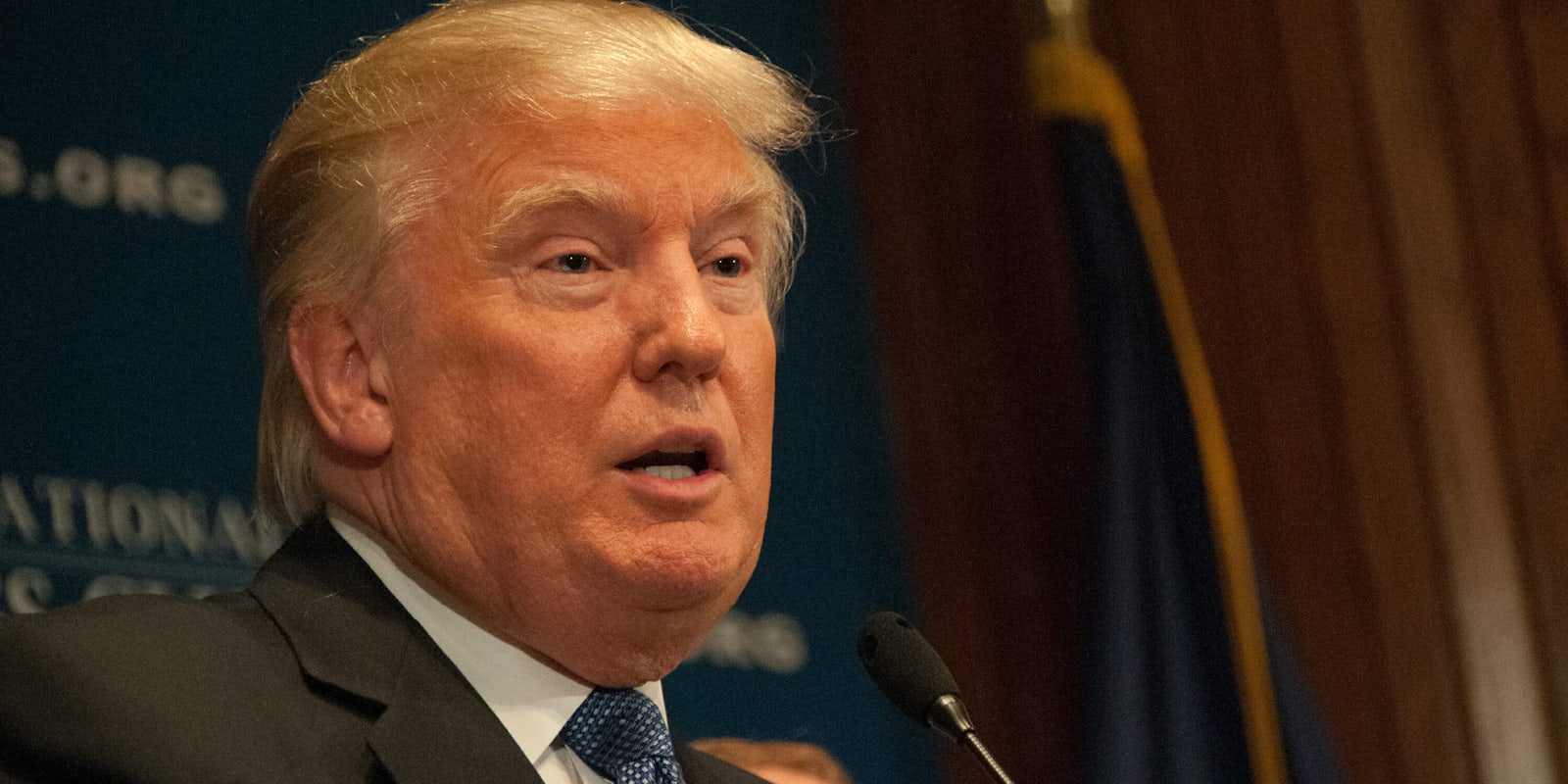President Donald Trump said he is willing to consider increasing the federal tax on gasoline and diesel fuel as part of his plan to pay for $1 trillion in infrastructure upgrades.
“It’s something that I would certainly consider,” Trump said of increasing the gas tax during an interview with Bloomberg reporters on Monday.
Raising the gas tax to pay for the cost of infrastructure projects has long been considered, but Congress has not been willing to touch the issue in more than two decades. At the same time, increases in fuel efficiency and the rise of electric and hybrid cars has reduced the impact of a tax on fossil fuels.
The last hike on gas taxes came in 1993 under former President Bill Clinton, raising the tax 18.4 cents per gallon on gasoline and 24.4 cents per gallon on diesel fuel. Combined with state taxes on fuel, Americans are taxed roughly 50 cents per gallon on gasoline and just over 55 cents on diesel fuel.
A tax on fuel was not included in the White House’s one-page tax proposal unveiled late last month. The tax plan does feature a drop in the corporate tax rate from 35 to 15 percent, which would also benefit some smaller businesses, as well as a simplification of allowable deductions, elimination of the estate tax, and other provisions experts say would primarily benefit wealthy Americans.
The debate over how an increased federal gas tax would impact Americans remains unresolved, with both sides citing costs and benefits, but research from the Maryland Public Policy Institute found that lower-income Americans would face the heaviest burden from an increased gas tax.
Trump says his infrastructure plan will be unveiled later this month.
Read the full report at Bloomberg.


